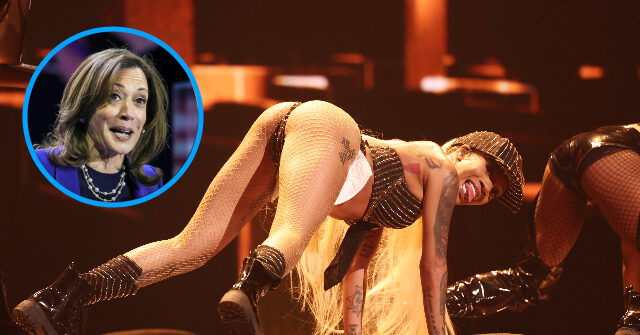The Kamala Harris campaign has recently faced criticism on social media following the performance of rapper GloRilla at a political rally in Milwaukee. This performance, aimed at energizing voters, was part of a broader strategy to engage younger demographics through pop culture and celebrity influence. GloRilla, a 25-year-old Memphis native known for her hit song “TGIF,” took the stage to perform a track that speaks to a hedonistic lifestyle and relationships, specifically boasting about interactions with other women’s partners. However, the performance was heavily censored, as the lyrics were filled with explicit language, leading to mockery among viewers who noted that virtually every other word had to be bleeped out.
The backlash on social media encompassed a mix of ridicule and frustration directed at the Harris campaign’s approach to engaging black voters. Many users expressed embarrassment over the choice of GloRilla for the rally, with one critic emphasizing that the performance was inappropriate given the song’s content and the need for extensive censorship. This sentiment was echoed by others who felt that such celebrity endorsements felt insincere, labeling them as a form of pandering. A female user voiced her disappointment, indicating that the Democratic Party needed to take black voters seriously and not resort to such gimmicks to gain support.
Critiques also emerged regarding the repeated pattern of the Harris campaign showcasing prominent artists. This isn’t the first time the campaign has been scrutinized for its engagement strategies; it previously faced backlash for featuring performances from artists like Meg Thee Stallion and Cardi B. At another rally, Cardi B’s teleprompter malfunctioned, leaving her scrambling for words and contributing to the perception that the campaign lacked organization. These instances have combined to paint a picture of a campaign struggling to connect with its target audience effectively.
Moreover, polls indicate that Kamala Harris is facing significant challenges in securing the black vote, a crucial demographic for the Democratic Party. A recent USA Today survey revealed that Harris is only garnering 72 percent of this voter base, which is alarmingly low compared to historical trends. If these numbers hold, it would represent a marked decrease in support for the Democratic Party during a presidential election, as past candidates have typically enjoyed much higher levels of endorsement from black voters. The looming threat of losing this critical support base presents a dire challenge for Harris as she seeks reelection.
Responses to the campaign’s approach hint at a broader conversation surrounding authenticity and representation within political outreach. Observers note that long-standing strategies of high-profile endorsements may no longer resonate with voters who yearn for genuine connection and thoughtfulness from their leaders. Critics argue that simply bringing in celebrities does not address the real issues facing black communities, and such missteps hinder the potential for meaningful engagement. The comments reflect a demand for authenticity that transcends surface-level attempts at garnering votes.
In summary, the controversy surrounding GloRilla’s performance at the Kamala Harris rally exemplifies a growing concern over the effectiveness of celebrity-driven political campaigns. As the campaign grapples with internal challenges and external criticisms, the stakes are high with an election fast approaching. Understanding the intricacies of voter engagement and approaching them with respect and authenticity may hold the key to rebuilding trust with crucial demographics—particularly black voters—who feel overlooked by traditional political strategies.

